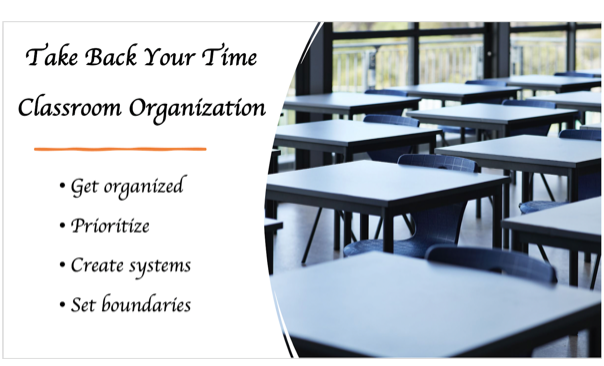
Welcome to our updated website! We are so excited to have this opportunity to help you increase scientific literacy in your students. August is the perfect time to reflect on the past year and the things you wish you had done in your classroom to improve your students’ learning experience.

The start of the new school year is the ideal time for a reset, organizing your classroom, and implementing new strategies to improve student learning. Experience teaches us that time is valuable. A few minutes of organization within the classroom at the beginning of the year leads to many hours of saved time as the year progresses.
Get Organized
One of the biggest time losses during a lesson occurs when you or your students cannot find the necessary supplies for a task. An essential part of a well-functioning classroom is training your students to be self-sufficient.
When everyone knows where materials and resources are stored, the number of questions you are suddenly asked as you release the students to do a task is greatly reduced. Clean-up also becomes much easier as students know where to return their materials.
Look at your classroom. Think of your teaching style and organize accordingly. Make sure the following are labeled and easily available:
- Supplies – colored pencils, scissors, glue, tape, paper
- Lab equipment – Designate a place for students to get the necessary supplies for the day’s activity.
- Develop clean-up and safety protocols.
- Reference materials – dictionaries, reading books, maps, etc.
Walls are valuable spaces that can be used as a student resource. Posters can be used to make reference material visible to students. Our back-to-school bundles contain posters displaying the Science and Engineering Practices and the Crosscutting Concepts in student friendly ways.
NGSS SEP and CCC posters
Prioritize
Simple planning before the school year starts will save you time and headaches as the year progresses. Reviewing the specialized needs of students allows you to prepare for IEP requirements and behavioral concerns before students enter the classroom. Identifying routine tasks that facilitate student learning allows you to focus during the first few weeks of school making sure all students understand your procedures and expectations.
Take the time on the first days of school and prioritize the following activities as you set your expectations for students.
- Tour your room with students
- Explain your classroom expectations
- Build essential agreements (rules) about what makes students successful in the class
- Practice learning procedures such as setting up and organizing interactive science notebooks, accountable talk, and distributing materials
- Set clear learning goals and targets for every activity
The first days of school are crucial for preparing a positive classroom experience for you and your students. These strategies for building a classroom routine make for a more efficient and effective learning environment.
Create Systems
Creating systems for routine tasks helps students focus on the learning and eliminates many of the non-content questions from students. Examples include:
- Bell work
- Science labs
- Vocabulary
- Homework
- Accountability systems for the students
Providing students with systems for everyday tasks helps them develop into independent learners. As the teacher, you will spend much less time explaining to students how to do every single task.
Set Boundaries:
You cannot do everything! Students should be working harder than you. Shifting your teaching strategies toward 3-dimensional learning in which students think, provide evidence, and defend their arguments moves the responsibility for learning to the students. Facilitate student learning by clarifying directions, scaffolding the activities, and shifting away from rote memorization.
Conclusion
Start small and build. Starting slow and bringing the students along creates a classroom that builds in complexity and gives students the confidence to perform tasks they did not think they could do.
Remember – you are the guide on the side, not the sage on the stage!
